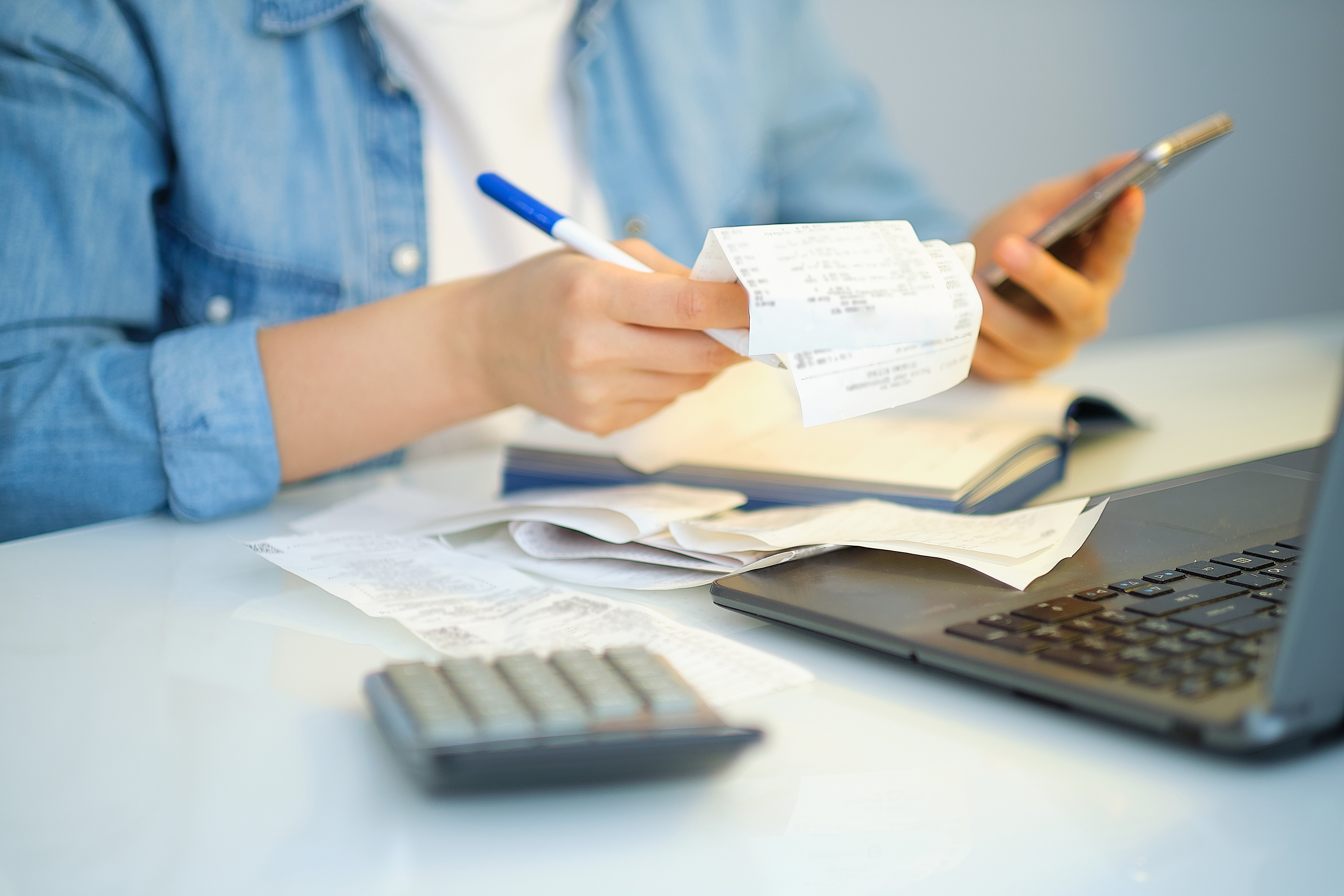6 Steps to Help You Maximise Your Tax Return
Don’t hit snooze on your tax return this year! Maximise your tax return with these tips from tax experts H&R Block on how to stay on track and in control this tax season.
1. Know when to lodge your tax return
If you lodge your tax return yourself you need to lodge with the Australian Taxation Office (ATO) by 31 October. You can start lodging your tax return from July 1.
If you use a tax agent or accountant to complete your tax return, you will be eligible for an extended tax return deadline. This deadline can vary depending on your circumstances, but can be as late as May 15 in the following year.
It's important to note that if you want to use an agent like H&R Block and take advantage of this extension, you need to sign up with the tax agent prior to October 31.
Sticking to the lodgment deadlines and having all the information and paperwork you need before you begin can help make the process easier and ensure you maximise your tax return.
“By being responsible and staying on top of the tax return deadlines, you can make your annual tax experience an easy and straightforward experience,” says H&R Block
2. Understand what you need to prepare for your tax return
Generally, you will need to prepare your personal information, income details and expenses for the last financial. Maximise your tax return by taking the time to think about the relevant expenses you may be able to claim.
Below is a checklist you can use as a guide to help you prepare before sitting down to lodge your tax return.
Personal information
- Tax File Number (TFN)
- Bank details
- Medicare and Private Health Insurance details
- Details about your spouse and/or children
Income details
- Income Tax Assessment from last year
- Income Statements for any jobs you’ve had over the last financial year
- Bank statements where you have received bank interest paid into your account
- Information on any lump sum payments you may have received or made
- Information for any Pensions or Government payments you may have received
- Statements for any dividends received or invested
- Statements for any other income you’ve received (e.g. rental properties, foreign income, business, employee share schemes)
Expenses
- Work-related expenses (e.g. mileage, uniform, self-education, union fees and industry subscriptions or membership fees, home office costs)
- Investment expenses (e.g. bank fees, financial advisor fees)
- Costs for managing tax affairs (e.g. tax agents)
- Rental property expenses
- Charitable donations over $2
This is a general guide to help you get started with your tax return. Depending on your circumstances, there may also be some industry-specific details that you will need to account for when preparing your tax return.
3. Decide whether you want to lodge your return by yourself or with support
According to H&R Block, approximately 70% of Australians use a tax agent to lodge their tax return. For some, having a professional tax agent or accountant manage their tax return offers a stress-free solution that can also help maximise their tax return while ensuring it's completed quickly and accurately, . This can also come in handy if you have a complex tax return, such as having multiple sources of income.
Organisations like H&R Block offer the ability to complete your tax return yourself through their online platform. This includes access to additional support from a registered tax agent who can review your tax return for accuracy prior to lodgement, with packages starting from $0 for a basic tax return.

You can also opt to lodge your tax return by yourself through H&R Block's online DIY platform that allows for pre-filled information and is a free and easy option if you have a basic tax return, online with a H&R Block Tax Expert for support from start to finish, or with the ATO directly.
4. Consider what work-related expenses you can claim
When lodging your tax return, you could maximise your tax return by claiming expenses related to your work. These may include any of the following:
- Vehicle if you use your personal vehicle for work, such as travelling between workplace sites or business meetings. This can include tolls and parking, although this doesn’t apply to your regular commute. You will need to provide a record of your expenses and can make this claim as cents per kilometre or with a logbook. H&R Block breaks down how you can claim vehicle expenses here.
- Travel (other) if you are required to travel overnight for work purposes and incur costs for meals, accommodation or incidentals, and are not reimbursed by your employer.
- Clothing and laundry if you incur costs for the purchase or laundry of clothing specific to your job, such as chef’s pants or a uniform. This must be specific to your occupation and cannot be clothes you wear outside of work. Some examples include protective clothing and footwear, such as hi-vis vests and steel-capped boots.
- Home office for expenses you may have incurred for your work from home set-up. There are specific factors that need to be considered when claiming home office expenses, and it is important to ensure you stay within the requirements to avoid being penalised. H&R Block have outlined methods and calculations you can use to claim work from home expenses here.
- Mobile phone for the percentage of your mobile phone use (calls and data) that relates to work purposes. See a breakdown of how to calculate and claim work-related use of mobile phones and other devices here.
- Professional registrations and fees if your work requires you to be a member of an association (e.g. trade unions) or you have subscriptions related to your line of work (e.g. financial publications if you are an investor).
- Self-education if you incur costs for a course related to improving the skills and knowledge you need to do your current job. This can also include expenses relating to equipment, home office running costs, internet use, stationery, textbooks and travel to your place of education. View a detailed list of self-education expenses here.
- Tools and equipment for the cost of purchasing any tools and equipment you need to do your work.
Tip: When claiming deductions as part of your tax return, you will need to ensure you provide proof of your expenses. These include receipts, invoices, bank statements or other record-keeping methods that clearly demonstrate the nature of the expense was work-related and is a cost you have incurred yourself.
To help you keep track of your receipts, H&R Block have a free receipt management app available for all users that can be downloaded from Google Play & App Store. Find out more here.
5. Understand what type of expenses you can claim based on your job
There are some job- or industry-specific expenses you may be able to claim that could provide an added way for you to maximise your tax return.
Below are some examples of industry-specific items that you may be able to claim as a deduction when lodging your tax return.
Construction and trade
- Tools or other work-related equipment
- The purchase and maintenance of a uniform that has your company’s logo
- Protective gear e.g. helmet, safety goggles, sunscreen and sunglasses if you work outdoors
- Fees relating to trade unions, professional licences or registrations, subscriptions and self-education courses.
View H&R Block’s Construction Worker Tax Deduction Checklist for more information here.
Healthcare
- Uniform and other protective clothing e.g. laboratory coat, non-slip shoes
- Costs relating to conferences (including attendance, travel, meals and accommodation), professional subscriptions or trade unions
- Meals purchased when you are required to work overtime
- Costs incurred for the work-related use of your personal car e.g. travel between patient homes or medical facilities.
View H&R Block’s Medical Professional Tax Return and Deduction Checklist for more information here.
Retail
- The purchase and cleaning of a compulsory uniform registered with AusIndustry
- Costs for work-related courses e.g. First Aid or management training
- Home office expenses incurred for time spent working from home e.g. preparing staff rosters
- Costs incurred for travel between one work location to another e.g. different stores.
You can find many more examples and information for industry-specific tax deductions on the H&R Block website here.
Remember to have records of the items you are claiming as proof of your expenses. These Include receipts, invoices or your clearly identifiable line items on your bank statements.
6. Look for other ways to maximise your tax return
Who doesn’t love having a little extra money in their pocket? When it comes to tax time, there are things you can do to maximise your tax return and, potentially, help yourself pay less tax and get more back in your tax refund!
Here are some pointers from H&R Block:
- Make a donation
Donations over $2 to a registered charity are tax-deductible, meaning you can claim a portion of this when lodging your tax return. So you can enjoy the feeling of doing good and giving back to the community in support of a cause or charity that means a lot to you, while being able to claim your donation at financial year end. - Claim what you’re entitled to
This is where it can help to be organised throughout the year and keep track of whenever and wherever you incur a work-related expense, so you can have all the records and paperwork ready when it comes to tax time.
If you haven’t done this throughout the year, that shouldn’t stop you! Think of all the expenses you have incurred for work, such as use of your car or working from home, and check to see if you have kept any receipts or can verify your purchase through your bank statements. - Time your expenses
Because the end of the financial year in Australia is June 30, you can make any tax-deductible purchases before the end of June and claim them in your tax return from July 1. This means you can purchase and claim any work-related expenses almost instantly, instead of waiting a whole year, unless of course there are purchases throughout the year that are out of your control.
If you own or run a small business, one of the best tax breaks is ”temporary full expensing” of capital assets. This allows you to buy items of capital equipment and then immediately write off the cost against current year profits.
And if you have any work-related expenses you'd like to purchase and claim as part of your upcoming tax return, but are still waiting for payday, you can cash out with Beforepay to make your purchase. With transparent pricing and flexible repayments, you could unlock fast access to funds while supporting your budget and cash flow, so you can take advantage of EOFY deals now and claim your expenses at tax time.
Tip: These are handy tips to know for when you lodge your tax return this year, but also to keep in mind for the year ahead. Being aware of these tips now gives you a runway to start the next financial year on the right foot, with the whole year ahead to make little changes that can make a big difference the next time you lodge your tax return!

Disclaimer: Beforepay Group Ltd, ABN: 63 633 925 505. Beforepay allows eligible customers to access their pay and provides budgeting tools. Beforepay does not provide financial products, financial advice or credit products. The views provided in this article include factual information and the personal opinions of relevant Beforepay staff and do not constitute financial advice. Please read our Terms of Service and the Terms and Conditions of our Pay Advance carefully before deciding whether to use any of our services.


